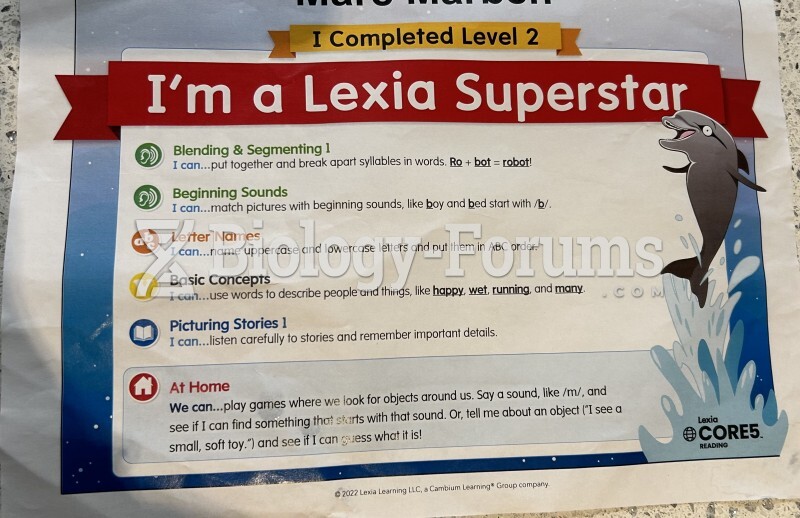|
|
|
Asthma cases in Americans are about 75% higher today than they were in 1980.
Signs of depression include feeling sad most of the time for 2 weeks or longer; loss of interest in things normally enjoyed; lack of energy; sleep and appetite disturbances; weight changes; feelings of hopelessness, helplessness, or worthlessness; an inability to make decisions; and thoughts of death and suicide.
The first successful kidney transplant was performed in 1954 and occurred in Boston. A kidney from an identical twin was transplanted into his dying brother's body and was not rejected because it did not appear foreign to his body.
Increased intake of vitamin D has been shown to reduce fractures up to 25% in older people.
Approximately 500,000 babies are born each year in the United States to teenage mothers.







